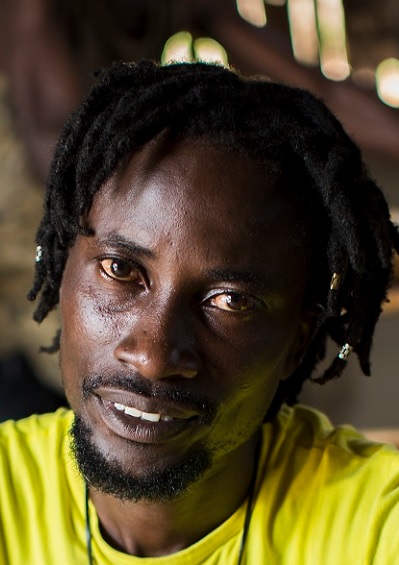Ghana’s Bamboo Bicycles
An enterprising Ghanaian man works with a team of locals to produce stunning bicycles from bamboo.
March 19, 2016

Nana Kofi Acquah is a storyteller who uses the camera as his favorite medium. After five years in advertising working as the Executive creative Director of TBWA/ Ghana, he decided to pursue photography full time. Since then he has taken pictures for companies, non-government organizations and magazines in countries including Cameroon, Uganda, Angola, Nigeria, Mali, Togo, Tanzania, The Gambia, Cote D’Ivoire, Liberia, and Ghana. He lives in Kokrobite, a rural district of Accra with his wife, Gloria, three children and two boerboels.
Until 2007, Ibrahim Djan Nyampong sold art and craft materials to tourists visiting the arts centre in Accra, the capital of Ghana. But both the money and prospects were poor, so he decided to try something different – making bicycles from bamboo.
Today, he and his team make around 300 bicycles a year in a workshop perched high on a hill, half of which has been eaten away by illegal stone miners, and linked to the rest of the world by a pot-holed, dusty, winding road.
“This is where we could afford to buy land, so this is where we have the workshop,” says Ibrahim.
His bicycles sell for around €350 each, mainly to buyers in Europe and the United States. But he hopes that as they become better known and demand rises he can lower production costs enough to allow local people to afford them.
At first, many people thought making bicycles from bamboo was something of a joke, he says, but now people are warming towards the bamboo bike. “Even the very first bicycle I made, we still ride it. They are very strong.”
Text and photographs by Nana Kofi Accqah
 Nana Kofi Acquah is a storyteller who uses the camera as his favorite medium. After five years in advertising working as the Executive creative Director of TBWA/ Ghana, he decided to pursue photography full time. Since then he has taken pictures for companies, non-government organizations and magazines in countries including Cameroon, Uganda, Angola, Nigeria, Mali, Togo, Tanzania, The Gambia, Cote D’Ivoire, Liberia, and Ghana. He lives in Kokrobite, a rural district of Accra with his wife, Gloria, three children and two boerboels.
Nana Kofi Acquah is a storyteller who uses the camera as his favorite medium. After five years in advertising working as the Executive creative Director of TBWA/ Ghana, he decided to pursue photography full time. Since then he has taken pictures for companies, non-government organizations and magazines in countries including Cameroon, Uganda, Angola, Nigeria, Mali, Togo, Tanzania, The Gambia, Cote D’Ivoire, Liberia, and Ghana. He lives in Kokrobite, a rural district of Accra with his wife, Gloria, three children and two boerboels.The Other Hundred is a unique photo-book project aimed telling the stories of people around the world who are not rich but who deserve to be celebrated.
The Other Hundred Entrepreneurs: 100 Faces, Places, Stories — the second volume in The Other Hundred series — focuses on the world’s everyday entrepreneurs. It captures the reality that small and medium-sized businesses, rather than tech billionaires or elite MBAs, contribute the majority of the world’s jobs, including half of all jobs in Africa and two-thirds in Asia.
The book offers an alternative to the view that most successful entrepreneurs were trained at elite business schools. Here are people who have never written a formal business plan, hired an investment bank, planned an exit strategy or dreamt of a stock market floatation. Some work for themselves, others employ a few people, still others a few hundred.
 The book’s 100 stories were chosen from a pool of 10,000 images shot in nearly 150 countries. The book is published by Oneworld Publications in London and is available in bookstores worldwide and online.
The book’s 100 stories were chosen from a pool of 10,000 images shot in nearly 150 countries. The book is published by Oneworld Publications in London and is available in bookstores worldwide and online.




